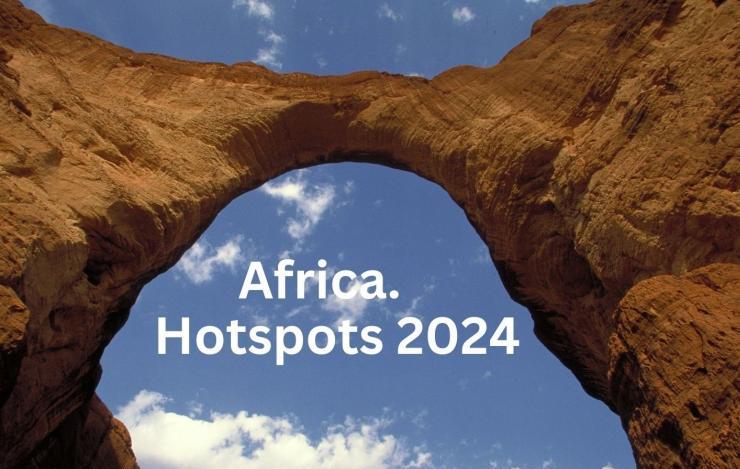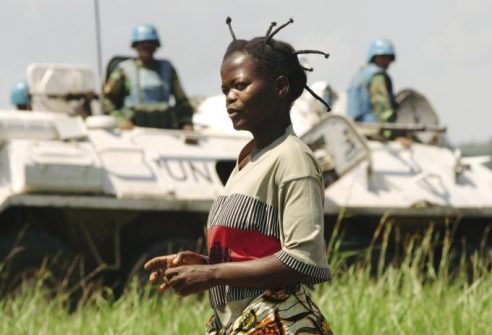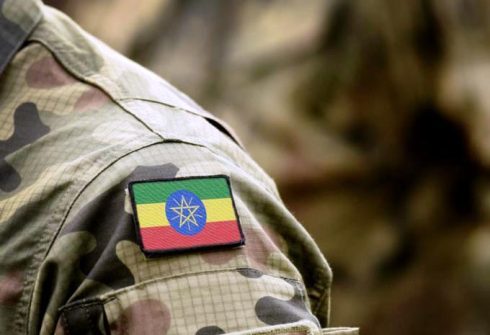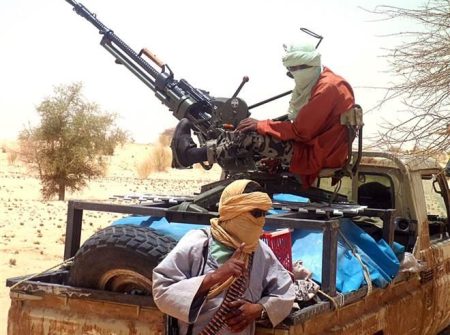Africa. Insecurity and Fear.

If the current dynamics in the security field continue, and there are no signs of a reversal of the trend, there will be no shortage of crisis in Africa in 2024. Some countries will be particularly concerned, but insecurity will have consequences also in those nations that will be spared by terrorism and coups.
The Democratic Republic of the Congo will remain one of the major hotspots in Africa in 2024, due to the complex security framework of this country. The political leadership will struggle to cope with the rebel groups that operate in various provinces (first of all, North and South Kivu and Ituri), but also the ethnic militias that are spreading in the western zone while, at the same time, countering the moves of neighbour states (especially Rwanda) that interfere in DRC’s internal affairs and support armed groups.The natural riches of the country (gold, coltan, diamonds, copper, oil, etc.) will continue to tempt many who will exploit its instability to spoil it.

The decision to withdraw the UN Mission in DRC (MONUSCO), as by request of Kinshasa, will have dire consequences on the security of the northeastern provinces. File swm
The decision to withdraw the UN Mission in DRC (MONUSCO), as by request of Kinshasa, will have dire consequences on the security of the northeastern provinces (especially in North Kivu) in 2024. Even if it did show relevant flaws in its action, MONUSCO provided valuable military support to the government military and in a framework of rule of law. Their supposed inability pushed the local populations to protest, even violently, against the UN peacekeepers. But at this time, it seems not likely that Congolese troops, even if supported by those friendly countries and regional organizations, will neutralize (or, at least, reduce the lethality of) armed groups. For several years Ethiopia has been trying to become the leading country in the Horn of Africa. It is doing so both militarily (for example, sending troops to stabilize Somalia) and politically and economically.The project of the Great Ethiopian Renaissance Dam on the Nile River is aimed at providing power for Ethiopia but also to neighbouring countries.

For several years Ethiopia has been trying to become the leading country in the Horn of Africa. 123rf
The peace agreement signed with Eritrea in 2018 seemed to open an era of peace and development for Ethiopia, but in 2020 the civil war between Addis Ababa and the Tigray minority political leadership erupted. A ceasefire was reached in November 2022, but the conflict is not over, and minor clashes still occur. Then the conflict in Amhara region erupted and it is ongoing. And the armed groups from the Oromo community must still reach an agreement with the government.
In 2023, Ethiopian Prime Minister Abiy Ahmed expressed on several occasions the idea that his country is entitled to have access to the sea. A landlocked country, Ethiopia now uses Djibouti port as the main gateway to import and export goods. But Djibouti is an independent country. Ahmed’s words seem to imply that Ethiopia, by means of politics or by those wars, wants to get its own port.
The Eritrean port of Assab on the Red Sea may be in Ahmed’s mind, since it was part of Ethiopia until Eritrea became independent in 1993. But this desire could bring a new war with Eritrea, a war that could reignite the internal conflicts in Ethiopia. Due to these dynamics, in 2024 Ethiopia will be another major hotspot on the continent.
International players and threats
The African countries will have to cope with various levels of intensity with the terrorist threat. The Sahel is actually a sort of gigantic hotspot due to the extremist threat. This is the area of operation of diverse groups linked to Al Qaeda or to the Islamic State that fight with each other and with security forces.
Attacks will presumably take place in countries such as Nigeria, Mali, Burkina Faso, and Cameroon, but also (even if on a smaller scale) in the northern areas of Benin, Togo, Ghana, and Cote d’Ivoire.On the east coast of Africa, the security forces of countries such as Somalia, Kenya, Tanzania, and Mozambique will be confronted by jihadism. But insecurity could also reach areas that are considered as safe.

Jihadists in Mali. File swm
Another threat to security could be posed by coups. In 2023 two military coups took place in western and central Africa, one in Niger and one in Gabon. At this time, the putschists are still in command even if the international community in general and African countries in particular reacted in a hostile manner. Those who succeeded in overthrowing institutions in recent years are in power and this sets a negative example to those who are plotting to chase governments in Africa. Some countries are considered more at risk, due to factors such as an autocratic regime (Cameroon, Equatorial Guinea, Republic of Congo) or the presence of leaders who are contested (such as Chad). But it is possible that that experienced and shrewd chief of state will keep on ruling their countries.
In 2024 Africa as a whole will still be the theatre of a turf war between world powers. China is arguably the major player on the continent, due to its massive economic engagement and its support for the ruling regimes, whoever they are, without strings attached in terms of respect for human rights or the rule of law.
In the last years, Moskow’s influence grew considerably on the continent, mainly at the expense of France. Its difficulties in Ukraine and partial isolation notwithstanding, Moskow in 2023 clearly stated that its involvement in Africa (in countries such as the Central African Republic and Mali) is strategic and therefore it will continue. Western powers do not operate in a coordinated way due to their rivalries and this creates friction. But they (and also players such as Turkey, the Gulf States and India) will still vie for power in Africa.
Andrea Carbonari
Security Analyst



